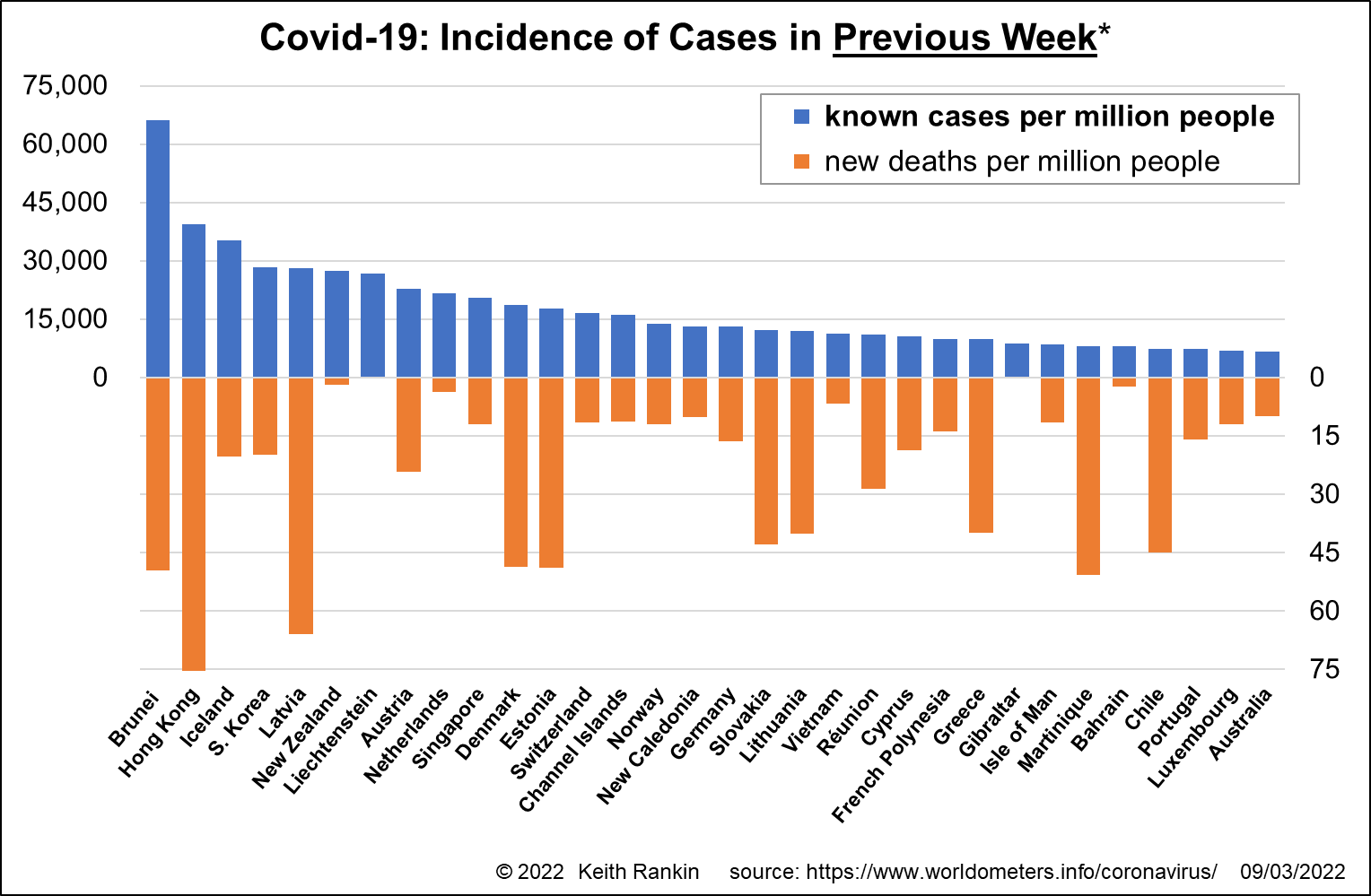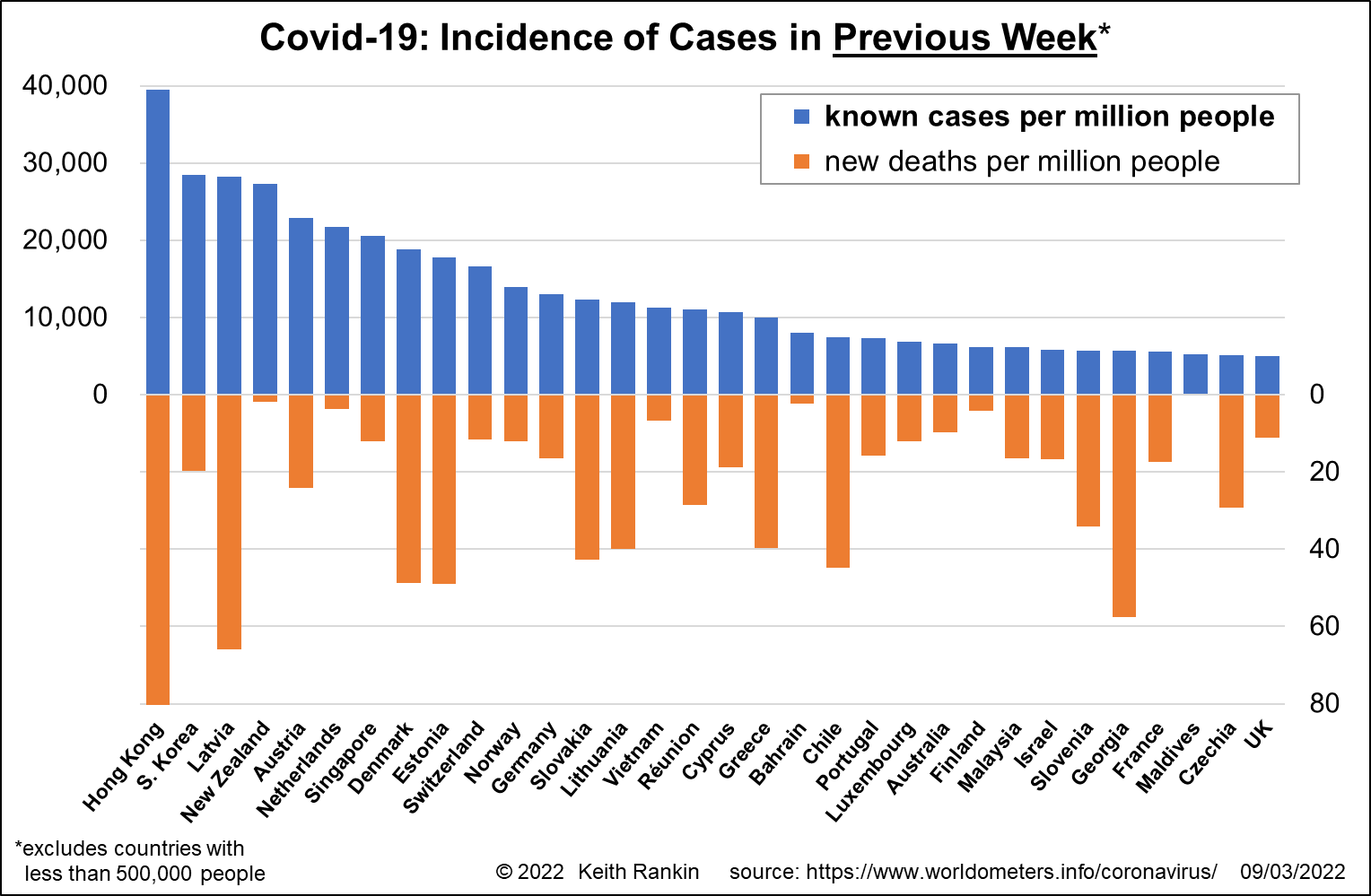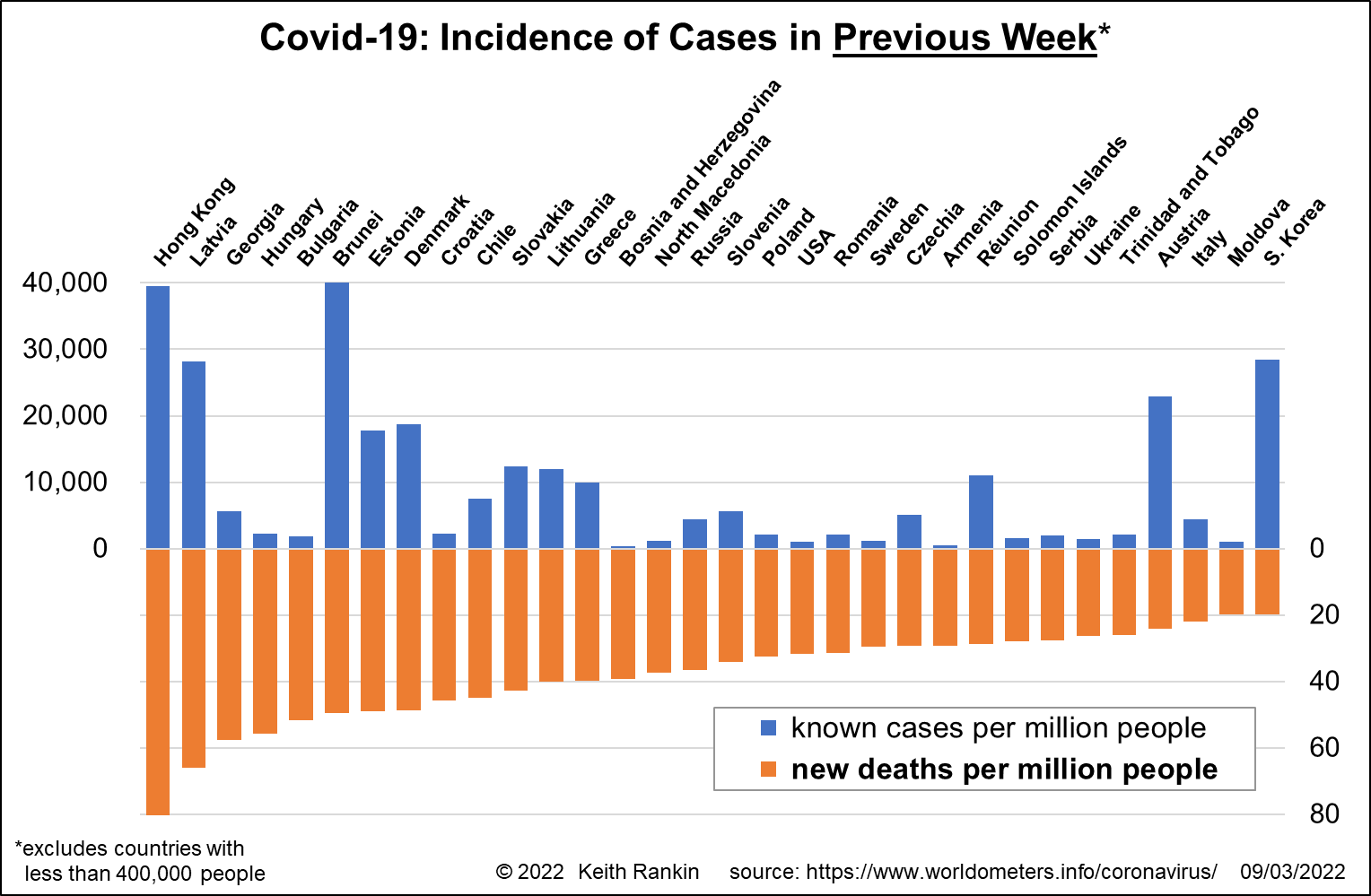Analysis by Keith Rankin.
This summary, of reported cases of people testing positive for Covid19, and deaths recorded of people with Covid19, is the first to include New Zealand.
Reported Positive Cases: All Countries (except Turkmenistan and North Korea)

Most countries in this list are experiencing a covid-omicron wave of cases, but have relatively few deaths. As usual, there are a number of small countries (although the Caribbean no longer features, except for Martinique, which like Réunion, New Caledonia and French Polynesia, tell us more about France than about the Caribbean).
In addition to New Zealand as a new entrant, we see a number of Asian countries returning to the Covid19 League Table. Hong Kong and Brunei have particularly serious outbreaks. Brunei had first contact with covid last year during the Delta wave. But it’s only now that it’s anywhere near the top of the league table.
Hong Kong is, like New Zealand, another country which pursued a strict elimination strategy. Unlike New Zealand, its present outbreak has an unusually high number of associated deaths; indeed it’s way off the chart at 177 weekly deaths per million people, equivalent to 126 deaths per day in New Zealand. Hong Kong does have a lower vaccination rate than New Zealand, and most people live in crowded circumstances. Like New Zealand, Hong Kong was a significant Delta hold-out; so that 2021 variant – on a different branch of the covid family tree – also contributes to Hong Kong’s present tragedy.
Interpretation of this chart is mixed, depending on the country. Some European countries – such as Denmark – seem to be going through a second wave of Omicron, and this time with higher recorded death statistics. It may be more than people dying entirely of other causes coincidentally testing positive for Covid19. It may be that vulnerabilities created by a mix of comorbidity and immunological naivety, both aggravated by the events (the infections and the mandates) of the last two years. Also, vaccination immunity may be waning faster than we would wish to think. To get a better handle on these deaths, we need ‘excess death’ data (calculated from ‘total deaths’) for the last five weeks.
Some governments are ridiculously tardy at publishing this simple metric: total deaths. Many governments – especially in Asia and Africa – don’t even count ‘total deaths’. (Denmark and New Zealand are among the best countries in this regard.)
Reported Cases and Recorded Deaths for larger countries


In the first chart for larger countries, we note the presence of Finland, a country which went to great steps to keep covid out, and which had more success in winter-time than other European countries. The cut-off date for the charted data is 6 March. On 7 March, Finland – with the same population as New Zealand – announced 184 covid deaths. Finland may prove to be a warning for New Zealand; that New Zealand is not yet ‘out of the woods’ re Covid19, and that New Zealand may have been, so far, more fortunate than clever.
The final chart – which includes ultra-wealthy Brunei, with a population of 444,000 – shows that Eastern Europe (including eight ex-Soviet countries) continues to dominate the covid mortality league. These European recorded deaths are by no means an overstatement of covid mortality.
Re Western Europe, we note the presence of Sweden, which has never tested for covid on anything like the scale that Denmark has tested. While Sweden’s death number is almost certainly an overstatement of covid mortality – same as for Denmark – the second Omicron wave in Sweden would seem to be more problematic than its first Omicron wave.
Covid still needs to be watched, more than ever now that the world’s attention is elsewhere. But watched, and reported, carefully. The 95-year-old Queen seems to have breezed through her mild Omicron illness. She clearly had a good level of immunity, and has kept good respiratory health throughout her life.
Rather than thinking of covid as an evil micro-monster, we may think of covid as an agent that is exposing our many underlying health issues; issues that arise from significant imbalances in too many human lives. For too long we have thought of our health – and our bodies – as being things that can be easily fixed when they go wrong; a case of what economists call ‘moral hazard’. Covid tells us otherwise. It can teach us much about both comorbidity and co-immunity; covid the teacher, rather than covid the menace. And, with that in mind, it may be better to address the problem of unbalanced living than to approach viruses with a sense of fear.
Viruses are part of our ecology; the balance of nature that humans are a part of, and not apart from.
*******
Keith Rankin (keith at rankin dot nz), trained as an economic historian, is a retired lecturer in Economics and Statistics. He lives in Auckland, New Zealand.




